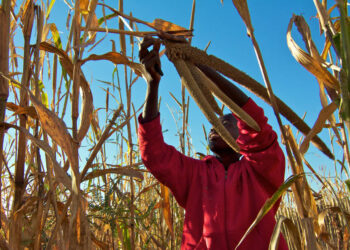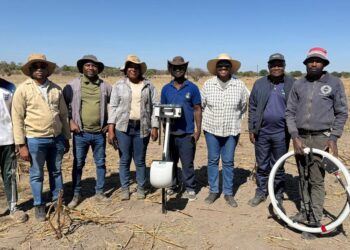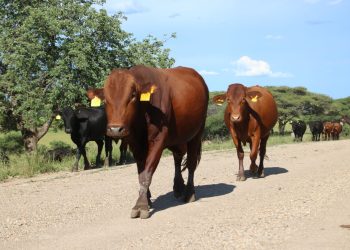
Namibian smallholder farmers harvested 100 metric tonnes of agro and horticulture produce through the World Food Programme’s (WFP) 12 community-based food system projects that generated over US$28,000 (N$509,040) in income and created 368 jobs, benefitting women and youth.
These projects directly impacted over 300 smallholder farmers, who received comprehensive support, enhancing their agricultural skills and technology and creating over 350 agricultural jobs.
“This initiative reinforced skills and technology creating over 350 agricultural jobs. WFP’s support to food systems not only generated over US$28,000 in income but also forged essential connections to the national market,†stated WFP Namibia.
Across various project sites, farmers collectively harvested over 100 metric tonnes of agricultural produce, significantly boosting Namibia’s food production capacity and reducing reliance on imported food sources.
Notable initiatives included the Ondera and Tsumkwe food systems projects. These projects, in partnership with the Namibian Correctional Service and other community-based initiatives, showcased models of food security and economic development.
“Beyond immediate food security, WFP’s initiatives supported government programmes, enhanced institutional strength and pursued digital transformation. These efforts collectively contributed to a robust framework for recovery and resilience, ensuring Namibia is better equipped to face future climate challenges,” the organisation noted.
Notable examples include projects like Stampriet Primary School, Berseba Food Systems Project, Tsumkwe Clinic and Schlip Clinic, each receiving 500 chickens for egg production.
Through these targeted efforts, WFP bolstered Namibia’s agricultural output and economic resilience, setting a strong foundation for sustainable development.
Meanwhile, the WFP collaborated with key government agencies and UN sister organisations to enhance Namibia’s climate-based early warning systems.
This initiative was part of the National Resilience Building Strategy and Vulnerability Assessment Analysis, which aims to improve the country’s capacity to respond to climate-related hazards.
“A central component of WFP’s strategy was the introduction of the Three-Pronged Approach (3PA) for climate resilience. This included workshops designed to empower local communities and authorities with sustainable practices,” said WFP.
Additionally, WFP led the environmental pillar of the UN Partnership Framework, emphasising environmental sustainability.











